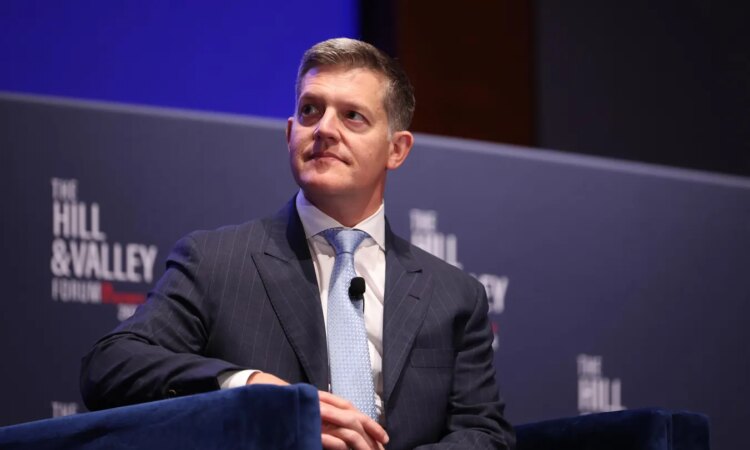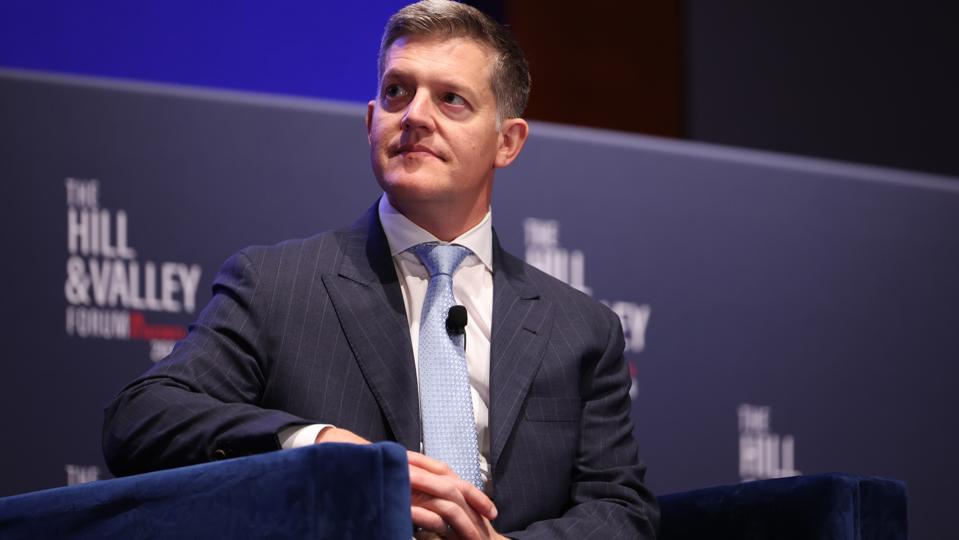Roelof Botha Steps Aside as Sequoia Capital Names New Leaders Amid The Firm’s Cultural Reckoning

WASHINGTON, DC – MAY 01: Roelof Botha, Managing Partner, Sequoia Capital speaks onstage during “The Future of Dual-Use AI and the Explosion of AI Apps” at The Hill & Valley Forum on AI Security at U.S. Capitol Visitor Center on May 01, 2024 in Washington, DC. (Photo by Tasos Katopodis/Getty Images for Jacob Helberg)
Getty Images for Jacob Helberg
A Power Shift at Silicon Valley’s Most Storied Firm
In one of the most consequential leadership changes in venture capital, Sequoia Capital has replaced its global leader, Roelof Botha, handing control to longtime partners Alfred Lin and Pat Grady. The move, first reported by The Wall Street Journal and confirmed in a public letter on LinkedIn from Botha describing the pair as Sequoia’s “new stewards,” comes after a turbulent two years that tested the firm’s culture, credibility, and cohesion.
Botha joined the firm after helping take PayPal public in 2002 as its finance chief, and he became managing partner that year after leading Sequoia through its complex global split into independent entities in China and India. Now he is stepping aside from his leadership role amid a period of heightened internal strain. Earlier this year, the firm’s chief operating officer, Sumaiya Balbale, resigned following a public controversy over partner Shaun Maguire’s Islamophobic tweets—an episode that exposed deep cultural divides and the firm’s decision to not speak publicly on issues of bias and accountability.
What might once have been dismissed as a PR flare-up evolved into a governance test for venture capital—one that even the most disciplined partnership structure couldn’t contain.
A Reckoning Years in the Making
For decades, Sequoia defined Silicon Valley’s mythology: the disciplined, founder-friendly kingmaker behind Apple, Google, Airbnb, and Stripe. Its success was rooted as much in operational rigor as in the aura of quiet power cultivated by leaders like Don Valentine and Michael Moritz.
But in recent years, that mythology has begun to crack. The firm’s 2023 decision to separate its global arms into HongShan (China) and Peak XV Partners (India and Southeast Asia) fractured its once-unified brand. Behind the scenes, Sequoia faced the same pressures as many of its portfolio companies: geopolitical risk, culture wars, and the moral complexity of managing global money in an age of polarization.
The Maguire controversy was a breaking point. When the firm declined to publicly address a partner’s tweets widely perceived as Islamophobic—tweets targeting New York State Assemblyman and New York City Democratic mayoral candidate Zohran Mamdani—it triggered an internal debate about Sequoia’s values. Balbale, one of the highest-ranking Muslim women in venture capital, quietly exited soon after. The episode, and Sequoia’s silence, became a symbol of how elite institutions struggle when the performance of returns eclipses the practice of principle.
(Author’s note: For deeper analysis of this controversy, see my prior Forbes article on Sequoia’s moral reckoning. Botha didn’t respond to requests for comment, and Sequoia stated that it doesn’t comment on personnel issues.)
The New Guard and the Return to U.S. Control
By elevating Lin and Grady, Sequoia appears to be returning its center of gravity firmly to the United States. Lin, known for his operational precision and close relationships with founders such as Brian Chesky of Airbnb, and Grady, recognized for his analytical discipline, represent both continuity and containment. Their appointments signal a pragmatic move: stabilize the firm, reassure LPs, and reset the public narrative after months of turbulence.
Botha’s tenure was defined by globalization and consolidation. Lin and Grady inherit an era of fragmentation and scrutiny. Their first challenge will not be identifying the next breakout founder, but restoring the partnership’s internal confidence—and its external moral credibility.
While Sequoia has framed the leadership change as a planned transition, the timing suggests urgency. This is not a moment of victory but of vulnerability: a recalibration in the face of political, reputational, and cultural risk. The Financial Times described Sequoia’s latest moves as “a defining test of culture for the world’s most powerful venture firm.”
Sequoia has apologized to LPs before—most notably after its ill-fated FTX investment in 2022—but this time, the reputational damage isn’t financial. It’s cultural.
When Performance Eclipses Principle
In Silicon Valley, few currencies have been traded more lucratively than silence. For years, top venture firms operated on the premise that moral neutrality protected deal flow and relationships. But in the modern era—where sovereign LPs, global politics, and public perception intersect—values are no longer optional. They’re material to business continuity.
Sequoia’s leadership reset is more than a succession—it’s a cultural reckoning. The firm that once stood above the fray of politics and principle now finds itself defined by them. Governance, ethics, and transparency are no longer soft topics; they’re risk vectors.
As Lin and Grady take the helm, they inherit more than a portfolio—they inherit a test of conscience. Can Sequoia reclaim the leadership it once projected through performance alone? Or has the mythology of venture finally collided with the reality of its own making?
In venture capital, trust—not capital—is still the rarest currency of all.





